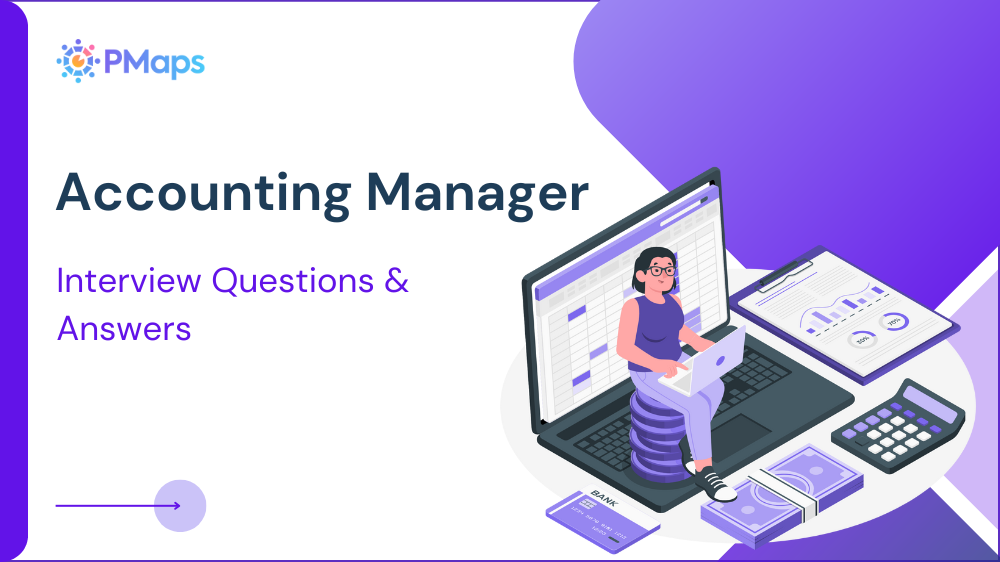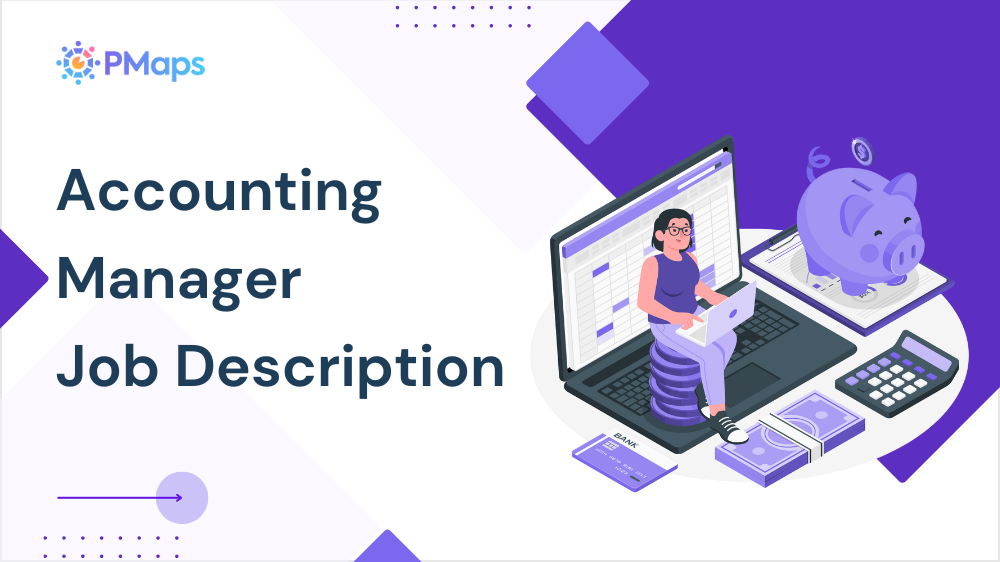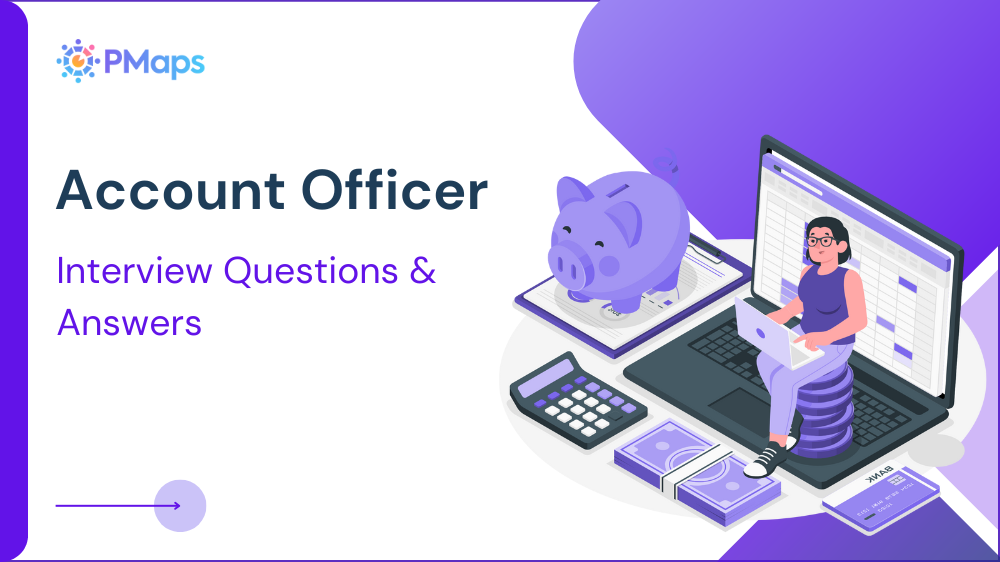
Accounting Managers are essential for maintaining the financial integrity of any organization. They ensure accurate financial reporting, compliance with regulations, and help shape strategic financial decisions. Beyond managing day-to-day accounting activities, these professionals often supervise teams, interact with stakeholders, and analyze financial data to inform business decisions.
Narrow it down—run the Accounting Manager Assessment today.

When hiring an Accounting Manager, it’s critical to evaluate not just technical skills like financial reporting and budgeting, but also leadership qualities, problem-solving abilities, and capacity to oversee a team in a fast-paced environment. This guide outlines 25 carefully selected accounting manager interview questions to help you assess both the technical and managerial skills of your candidates.
Need to reconfirm? Check the Accounting Manager Job Description.
General Interview Questions for Accounting Managers
General interview questions for Accounting Managers help assess a candidate's experience with accounting principles, ability to manage teams, and approach to handling key financial responsibilities. These questions provide insight into their leadership style, problem-solving skills, and overall fit for your organization.
1. Can you describe your experience with financial reporting and accounting standards?
What it Assesses:
Technical knowledge in accounting and familiarity with standards.
What to Listen For:
Look for candidates who have hands-on experience with financial reporting, knowledge of standards like GAAP or IFRS, and the ability to explain complex financial information clearly.
Sample Ideal Answer:
“I have extensive experience preparing monthly and annual financial statements, ensuring they adhere to GAAP standards. I’ve worked on consolidating financial data, overseeing internal controls, and ensuring compliance with tax regulations, all while managing a team to ensure accuracy.”
2. How do you manage and motivate an accounting team to meet deadlines and stay efficient?
What it Assesses:
Leadership, team management, and motivation techniques.
What to Listen For:
Look for candidates who emphasize clear communication, setting goals, and recognizing team accomplishments. They should also mention how they provide support during busy periods, such as month-end or year-end close.
Sample Ideal Answer:
"I focus on setting clear expectations and breaking down large tasks into smaller milestones. I ensure regular check-ins to monitor progress and offer feedback. During busy times, I prioritize tasks and ensure my team has the resources and support to meet deadlines."
3. Can you walk me through your experience with budgeting and forecasting?
What it Assesses:
Experience with financial planning and forecasting.
What to Listen For:
Candidates should demonstrate their experience creating budgets, forecasting future financial trends, and aligning financial strategies with business goals. Look for mention of specific tools or methods used.
Sample Ideal Answer:
“I’ve been responsible for preparing annual budgets and forecasting financial performance based on historical data and market trends. I work closely with department heads to align spending and revenue goals, ensuring we stay within budget while achieving our business targets.”
4. How do you handle discrepancies or errors in financial statements?
What it Assesses:
Problem-solving, attention to detail, and accuracy.
What to Listen For:
Candidates should explain how they investigate discrepancies, whether they follow a structured process to trace errors, and how they communicate and resolve these issues with their team or stakeholders.
Sample Ideal Answer:
“When discrepancies arise, I immediately review the financial statements to identify any errors in the data entry or calculations. I use reconciliation techniques to trace back through transactions. Once identified, I ensure the error is corrected, documented, and prevent future occurrences through improved controls.”
5. What is your approach to maintaining compliance with financial regulations?
What it Assesses:
Knowledge of compliance requirements and regulatory standards.
What to Listen For:
Look for candidates who are familiar with industry regulations and have a proactive approach to staying compliant. They should describe how they ensure their team understands and follows these regulations.
Sample Ideal Answer:
“I ensure compliance by staying up to date with changes in financial regulations and industry standards. I regularly review financial practices and provide ongoing training to my team. We also conduct internal audits to ensure all transactions are documented properly and meet compliance standards.”
Behavioral Interview Questions for Accounting Managers
Behavioral questions provide insights into how candidates have dealt with real-world challenges in their previous roles. These questions assess their leadership, decision-making, and problem-solving abilities—key traits for an Accounting Manager.
1. Tell me about a time when you identified a potential financial risk. How did you handle it?
What it Assesses:
Risk management, attention to detail, and proactive problem-solving.
What to Listen For:
Look for candidates who demonstrate a proactive approach to identifying risks early, analyzing potential impacts, and implementing solutions to mitigate the risk. They should discuss how they communicated the issue with senior leadership or clients.
Sample Ideal Answer:
“During a financial audit, I noticed discrepancies in the company’s cash flow that could have led to an overstatement of income. I immediately flagged the issue to my supervisor and suggested adjusting the cash flow projections. We implemented tighter controls to prevent similar errors in the future.”
2. Describe a situation where you had to lead a team through a challenging financial deadline. How did you manage the process?
What it Assesses:
Leadership, time management, and the ability to motivate teams.
What to Listen For:
Candidates should demonstrate leadership by outlining how they managed their team’s workload, delegated tasks, and communicated effectively to ensure the deadline was met. Look for examples of how they kept the team motivated and managed stress.
Sample Ideal Answer:
“In the lead-up to the year-end close, our team faced a tight deadline. I broke down the tasks, assigned clear responsibilities, and kept in close communication to track progress. We worked overtime, but I ensured regular breaks and acknowledgment of their hard work, which helped us meet the deadline without compromising accuracy.”
3. Can you give an example of how you improved a financial process or system within your team?
What it Assesses:
Process improvement, innovation, and operational efficiency.
What to Listen For:
Look for candidates who have taken the initiative to streamline processes, enhance system efficiencies, or introduce better tools. They should explain the issue, the steps taken to improve it, and the measurable impact of the change.
Sample Ideal Answer:
“We were manually reconciling accounts, which was time-consuming and prone to errors. I introduced an automated reconciliation tool that integrated with our accounting software. This reduced errors by 30% and saved the team over 20 hours a week, allowing us to focus on more strategic tasks.”
4. Tell me about a time when you had to resolve a conflict between two team members. What steps did you take?
What it Assesses:
Conflict resolution, team management, and communication skills.
What to Listen For:
Candidates should demonstrate empathy, fairness, and their ability to handle sensitive situations. They should describe the steps they took to understand both sides and how they worked toward a mutually agreeable solution.
Sample Ideal Answer:
“I had two team members disagree over the allocation of responsibilities. I first met with each one individually to understand their concerns, then brought them together for a calm discussion. We established clearer role definitions and a fair workload distribution, which resolved the issue and improved team collaboration.”
5. Describe a time when you had to make a difficult financial decision. What was the situation and how did you approach it?
What it Assesses:
Decision-making, financial judgment, and strategic thinking.
What to Listen For:
Look for candidates who demonstrate the ability to make tough decisions based on solid financial analysis, balancing risk and reward. They should discuss the decision-making process, factors considered, and the ultimate outcome.
Sample Ideal Answer:
“We had to decide whether to invest in a new software system that would improve efficiency but come at a significant cost. After analyzing the potential ROI and consulting with IT and other departments, I recommended moving forward with the investment. The system streamlined our operations and provided cost savings in the long run, validating the decision.”
Situational Interview Questions for Accounting Managers
Situational questions provide valuable insight into how candidates approach complex challenges in real-time. They help assess a candidate’s decision-making skills, ability to handle pressure, and practical application of accounting principles in everyday management situations.
1. If you noticed discrepancies in the monthly financial report close to the deadline, how would you address the situation?
What it Assesses:
Problem-solving under pressure, attention to detail, and prioritization.
What to Listen For:
Candidates should show a clear, calm approach to identifying and resolving issues. Look for steps such as reviewing the report, checking transactions, consulting with relevant departments, and communicating with leadership to meet the deadline.
Sample Ideal Answer:
“I would first double-check the report to pinpoint the discrepancies. I’d review the data entries and consult with team members to verify the figures. If necessary, I’d adjust the deadline or escalate the issue to senior management with an explanation and a plan for resolution.”
2. How would you handle a situation where the accounting team is overwhelmed by the year-end close, and some key tasks are falling behind?
What it Assesses:
Leadership under pressure, team management, and prioritization.
What to Listen For:
Look for a response where the candidate prioritizes critical tasks, delegates effectively, and motivates the team. They should mention reassigning resources, re-prioritizing work, and maintaining clear communication throughout the process.
Sample Ideal Answer:
“I would evaluate the outstanding tasks and prioritize the most critical ones that must be completed for the close. I’d redistribute work among team members based on their strengths, bringing in temporary support if necessary. Communication is key, so I’d keep everyone updated on progress and adjust timelines if required.”
3. If a department head requests a change in how their budget is reported, but it requires significant additional work, how would you handle the request?
What it Assesses:
Communication, negotiation skills, and process management.
What to Listen For:
Candidates should mention how they would weigh the cost of additional work against the benefit of the request. They should also discuss how they would communicate the impact of this change on resources, deadlines, and team workload.
Sample Ideal Answer:
“I would first meet with the department head to fully understand the reason for the requested change. After analyzing the feasibility and the additional resources required, I’d present the potential impact to them—both positive and negative—while also offering alternatives to achieve similar goals with less disruption to the team.”
4. If your team is behind on an audit because of a missed deadline, how would you get the process back on track?
What it Assesses:
Crisis management, task prioritization, and team leadership.
What to Listen For:
Look for candidates who demonstrate a structured approach to getting things back on track. They should discuss prioritizing critical tasks, collaborating with other departments if needed, and possibly adjusting deadlines with clear communication.
Sample Ideal Answer:
“I’d first evaluate the cause of the delay and identify the critical areas needing immediate attention. Then, I’d reassign team members to these priority tasks and seek additional resources if required. I’d also update the senior management on the new plan and renegotiate deadlines if necessary.”
5. How would you handle a situation where you disagree with senior leadership on a financial strategy or recommendation?
What it Assesses:
Decision-making, communication, and ability to challenge leadership constructively.
What to Listen For:
Candidates should show confidence in presenting their perspective and backing it up with data. They should also demonstrate respect for leadership while being able to offer an alternative view that is aligned with business goals.
Sample Ideal Answer:
“If I disagreed with senior leadership, I would gather data and present my case in a respectful and clear manner, highlighting the financial implications and possible risks. I’d also propose alternatives and discuss how they align with the company’s long-term goals, ensuring that the discussion remains productive.”
Technical or Functional Interview Questions for Accounting Managers
Technical interview questions evaluate a candidate’s proficiency with accounting software, their understanding of financial reporting and analysis, and their ability to apply accounting principles in decision-making and strategy. These questions ensure candidates are equipped with the necessary technical skills to succeed in the role.
1. What accounting software are you proficient in, and how have you used it to streamline accounting processes?
What it Assesses:
Proficiency with accounting software and process automation.
What to Listen For:
Look for candidates who are familiar with popular accounting tools such as QuickBooks, SAP, Oracle, or Microsoft Excel. They should explain how they’ve used the software to automate tasks, streamline workflows, and enhance reporting accuracy.
Sample Ideal Answer:
“I’ve used QuickBooks for day-to-day accounting tasks and SAP for enterprise-level financial reporting. I’ve also utilized Excel to create complex financial models. I’ve automated many of the routine tasks, such as invoicing and reconciliation, to save time and reduce human error.”
2. How do you handle month-end or year-end closing procedures?
What it Assesses:
Experience with closing processes and attention to detail.
What to Listen For:
Candidates should describe a systematic approach to closing procedures. They should explain how they ensure all accounts are reconciled, reports are accurate, and deadlines are met. Attention to detail and meeting tight deadlines should be emphasized.
Sample Ideal Answer:
“During month-end, I ensure that all transactions are recorded, reconciled, and reviewed for accuracy. I work closely with the finance team to ensure that there are no discrepancies. For year-end close, I perform a final review of all financial statements, prepare tax filings, and ensure compliance with internal controls before submission.”
3. What is your approach to budgeting and forecasting for a company?
What it Assesses:
Financial planning and forecasting expertise.
What to Listen For:
Look for candidates who use historical data, market trends, and strategic goals to create accurate forecasts. They should demonstrate a solid understanding of how to allocate resources efficiently and adjust forecasts as needed based on changing circumstances.
Sample Ideal Answer:
“I start by reviewing historical financial data and analyzing market trends. I work closely with department heads to understand their upcoming needs and goals. I use this information to create a detailed budget, ensuring alignment with the company’s strategic goals. I also continuously monitor performance and make adjustments to the forecast as needed.”
4. Can you explain the difference between cash and accrual accounting, and when would you use each method?
What it Assesses:
Understanding of accounting methods and their application.
What to Listen For:
Candidates should explain that cash accounting records transactions when cash is exchanged, while accrual accounting recognizes transactions when they occur, regardless of cash flow. They should mention when each method is appropriate for different types of businesses.
Sample Ideal Answer:
“Cash accounting records revenues and expenses only when cash changes hands, making it simpler for small businesses. Accrual accounting, on the other hand, records transactions when they occur, regardless of cash flow, which gives a more accurate picture of financial health. Accrual accounting is typically used for larger organizations or those with inventory, as it provides a clearer view of financial performance.”
5. What steps would you take to ensure compliance with financial regulations and internal controls?
What it Assesses:
Knowledge of compliance and internal controls.
What to Listen For:
Candidates should demonstrate a proactive approach to compliance, mentioning how they stay up to date with regulations (such as GAAP or IFRS), conduct regular audits, and implement or maintain internal controls to prevent errors or fraud.
Sample Ideal Answer:
“I stay up to date with all relevant financial regulations by regularly reviewing updates from accounting bodies. I ensure compliance by implementing strong internal controls, conducting periodic audits, and providing training to the team on regulatory requirements. I also encourage a culture of transparency and accountability within the team.”
Pro Tips for Interviewing Accounting Managers
Interviewing an Accounting Manager requires more than just assessing technical knowledge. You need to evaluate their leadership skills, ability to make strategic decisions, and how they will contribute to the financial health of your organization. These pro tips will help you dig deeper into the candidate’s experience and capabilities.
1. Ask about their experience leading a team through a complex financial project
Leading financial projects like audits, financial restructuring, or system implementations requires solid leadership and organizational skills. Ask candidates to walk you through their experience managing a team during such projects and how they handled challenges.
2. Test their understanding of compliance and regulatory requirements
Ensure candidates are up-to-date with industry regulations and have practical experience ensuring compliance. Ask about their experience with audits, tax reporting, and how they keep their team aligned with evolving regulations.
3. Inquire about their experience with financial reporting software
Candidates should be comfortable using a variety of financial tools to streamline reporting and ensure accuracy. Ask them about specific software they’ve worked with and how they’ve utilized it to enhance financial operations.
4. Evaluate their ability to manage competing priorities
Accounting Managers often juggle multiple priorities, especially during month-end and year-end closings. Ask how they manage competing tasks, prioritize urgent needs, and ensure deadlines are met without sacrificing quality.
5. Assess their communication skills with non-financial stakeholders
Accounting Managers often need to communicate complex financial concepts to non-financial departments. Ask candidates how they’ve successfully conveyed financial information to stakeholders, such as department heads or executives, to inform decision-making.
Conclusion
Finding the right Accounting Manager is crucial for keeping your financial operations running smoothly. This role requires a mix of technical skills and strong leadership abilities. With the right questions, you can assess not only a candidate’s financial expertise but also their ability to manage a team, handle complex tasks, and make smart financial decisions.









